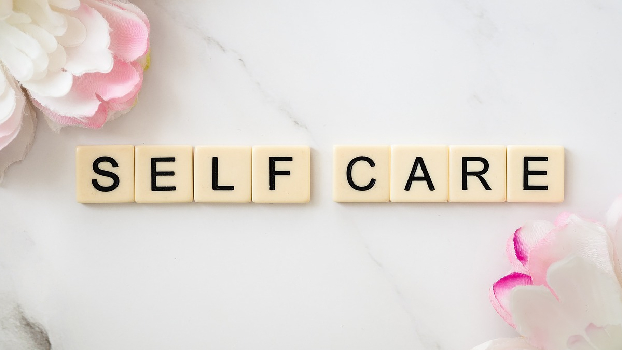
Cultivating emotional wellness is the foundation of a happy and fulfilling life. It allows us to experience positive emotions, build strong relationships, and handle life’s challenges with resilience. However, in today’s fast-paced world, emotional wellness often takes a backseat.
We get caught up in our daily routines, neglecting our emotional needs and well-being. This can lead to stress, anxiety, and a general feeling of dissatisfaction with life.
The good news is that cultivating emotional wellness is not complicated. It starts with taking care of ourselves, expressing gratitude, and cultivating positive thinking.
In this article, we will explore the power of self-care, gratitude, and positive thinking in cultivating emotional wellness. We will provide you with practical tips and strategies to improve your mental health and lead a fulfilling life.
The Power of Self-Care

Self-care is an important aspect of cultivating emotional health. This usually involves looking after your physical, emotional and mental health needs. Self-care looks different for everyone, but generally involves activities that nourish your mind, body, and spirit.
One of the most important aspects of self-care is rest. In today’s fast-paced and instant world, it’s easy to get caught up in the hustle and bustle of everyday life and you can only leave a little time for rest and relaxation. However, rest is very important for your physical and emotional health.
Getting enough sleep, taking breaks when you need them, and engaging in activities that help you unwind can all help you feel more energized, focused, and productive.
Another important aspect of self-care is nutrition for your body. Eating a balanced diet, staying hydrated, and engaging in regular physical activity can help you maintain good physical health, improve mood, and reduce stress.
Also, engaging in activities that bring you pleasure, such as a hobby or spending time in nature, can also help you feel more balanced and content.
Self care is the basis of emotional health. This involves looking after your physical, emotional and mental health needs. Unselfish self-care; it’s necessary for your well-being. When you look after yourself, you become more resilient, energetic and focused. Here are some tips to practice self-care:
1. Prioritize Sleep
Sleep is very important for emotional health. This allows your body and mind to rest, recharge and repair. Lack of sleep can cause mood swings, irritability and poor concentration.
Make sure you have enough time to sleep each night. The goal is that you can get 6-8 hours of sleep per night ideally.
2. Exercise Regularly
This is not only good for your physical health it is also very good for your mental health. The benefits of exercise can actually be the release of endorphins, which are natural mood boosters. It can also reduce stress and anxiety. Make time for regular exercise, even if it’s just a short walk around the block.
3. Practice Mindfulness
Having your full time and attention is the practice of being fully present and involved in the moment. This can help you to reduce stress, increase focus, and increase self-awareness. Try incorporating mindfulness into your daily routine. You can practice mindfulness through meditation, yoga, or just taking deep breaths.
The Power of Gratitude

Gratitude is one among many practices that focus on the good things in life. It involves expressing appreciation for the people, experiences, and things that bring joy and fulfillment to your life.
Gratitude is a powerful tool for emotional health. This can help you to shift focus from your weaknesses to what you have. Here are some tips for practicing gratitude:
1. Keep a Gratitude Gournal
A gratitude journal is a place where you can write down the things you are thankful for. Take a few minutes every day to reflect on the good things in your life and write them down in your journal. This can help you cultivate a positive mindset and increase your happiness.
2. Practice Gratitude With Others
Expressing gratitude to others can strengthen your relationships and increase your happiness. Take time to thank the people in your life who have made a positive impact on you. It can be a simple thank you note or a conversation that can touch the other person’s heart.
3. Focus on The Present Moment
When we focus too much on the past or the future, we can miss out on the good things in the present. You must try to be fully present and involved in anything at this moment.
Notice the beauty around you and take time to appreciate the little things in life. This can help you cultivate gratitude and increase your happiness.
Also Read: Physical Wellness and A Guide to Fitness, Exercise and Nutrition
The Power of Positive Thinking

Positive thinking involves focusing on the positive aspects of life, even in the face of challenges and setbacks. This will involve you to reframe negative thoughts and beliefs to be positive.
Positive thinking is a powerful tool for Cultivating Emotional Wellness This can help you overcome obstacles, increase resilience, and improve your overall well-being. Here are some tips for you to be able to practice positive thinking:
1. Practice Self-Affirmations
Self-affirmations are positive statements that you can say to yourself to boost your confidence and self-esteem. They can help you reframe negative thoughts into positive ones. Take a few minutes every day to say positive affirmations to yourself.
For example, some affirmations like “I can,” “I am worthy” and “I deserve love and happiness” are other examples of affirmations.
2. Surround Yourself With Positivity
Various characters of people and things around us can have a big impact on our mental health. Surround yourself with positive people who can uplift and support whatever you do as long as it is positive. Fill your surroundings with positive affirmations, quotes and images that inspire you.
3. Reframe Negative Thoughts
Negative thoughts can be a significant source of stress and anxiety. By you reframing negative thoughts into positive thoughts by focusing on solutions, not problems. For example, different shifts say, “I can’t do this”, you should say, “I will do my best and learn from my mistakes.”
Conclusion
Cultivating Emotional Wellness is very important to living a happy and fulfilling life. It begins with taking care of yourself, expressing gratitude, and cultivating positive thinking. By practicing self-care, gratitude, and positive thinking, you can improve your mental health, build strong relationships, and tackle life’s challenges with resilience.
Remember to prioritize your emotional wellbeing and take time every day to cultivate a positive mindset. With this tool, you can live a life full of joy, fulfillment and emotional well-being.


